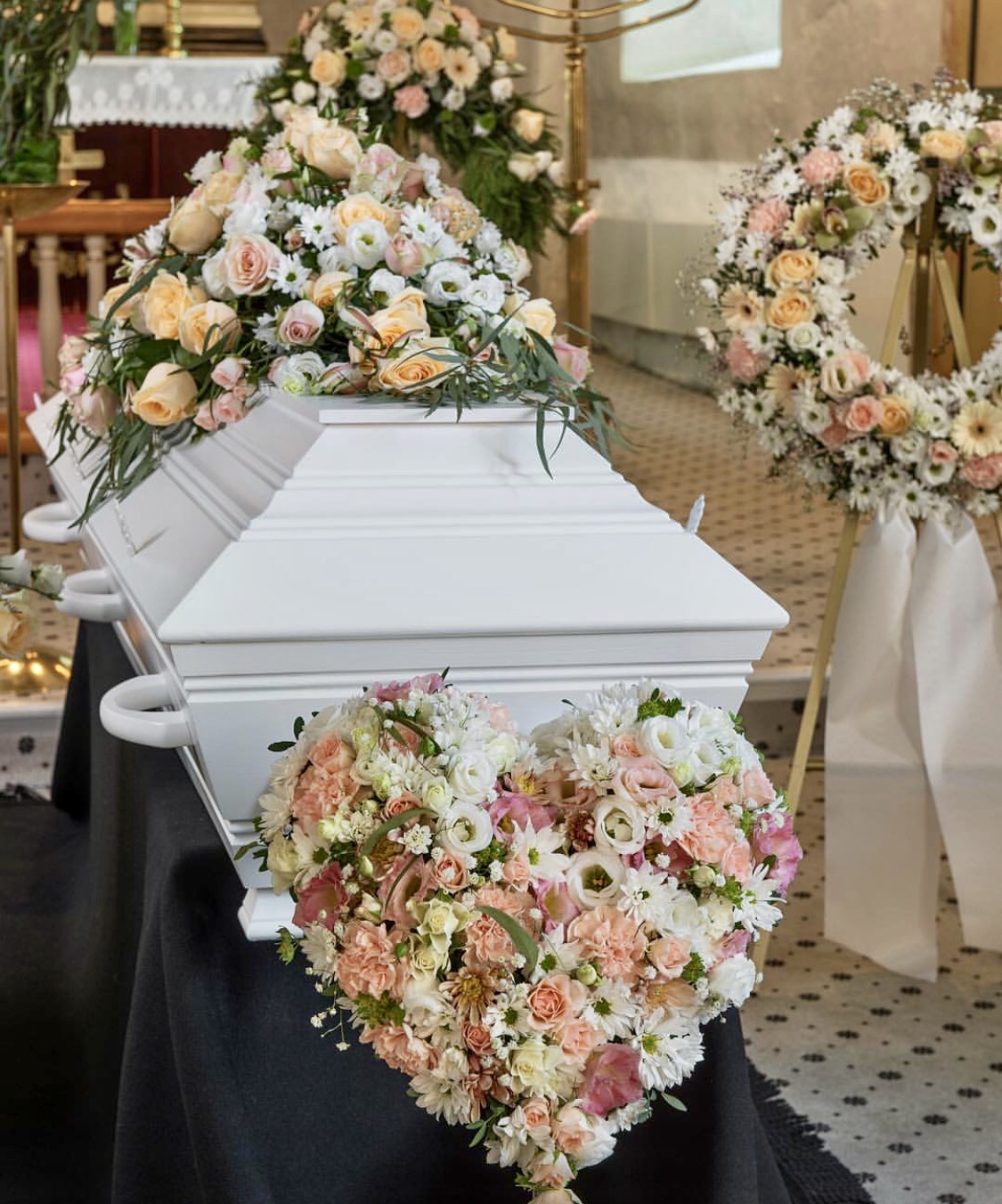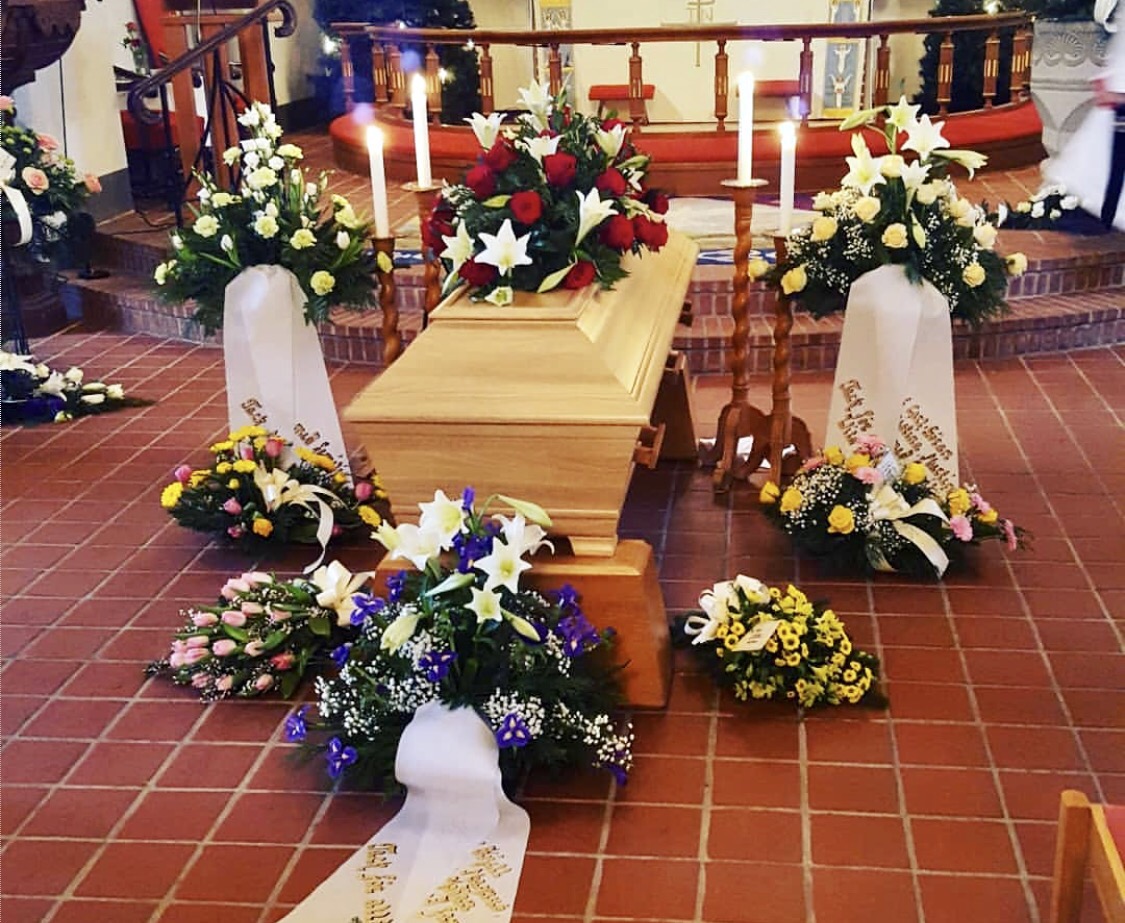I’ve worked as a Celebrant or Funeral Clergy for years. It’s probably not well known that prior to starting Texas Twins Events & The Pawning Planners, that I volunteered at numerous hospitals and nursing homes as a Hospice Clergy.
When we think of a Funeral or Celebration Of Life, its natural to feel sad and mortal. For the living, death of a loved one is a loss that can be felt for years. I’ve written numerous blogs regarding Complicated Grief Syndrome because I’ve witnessed situations where the survivor simply cannot accept losing a loved one.
From hoarding to excessive shopping, Complicated Grief can assume many variations that are tied to loss- Death & Complicated Grief Syndrome.
When a friend or loved one dies and I’m called in to Officiate, my role as a Celebrant also involves coordinating the event. Funeral Planning can be expensive for families and I often advise them of a law put in place few consumers are aware of, The Funeral Rule. This law protects grieving families from being taken advantage of financially- The Funeral Rule.
Funerals are emotionally complex. Knowing how to act at one may present challenges or at the very least, be confusing for those who have never attended one. Issues such as what to wear, where to sit, and how long to stay can seem overwhelming especially if you are grieving.
Traditionally, in many cultures, black is the color of mourning but these days, the rules are no longer as rigid regarding attire. Your clothing should be conservative in terms of color and style.
Men should avoid wearing jeans, athletic clothing, & caps. A suit and tie or slacks with a collared button down shirt with a tie and a belt are always good choices. Try to dress as if you were going to a job interview or church.
Women should avoid wearing “too casual” or festive clothing. Appropriate outfits for women include a skirt suit, pantsuit, or pants with a blouse or sweater and flats or heels (no sneakers). In many cultures, hats are also allowed for women.
If you are attending a Funeral or Memorial, sign the guestbook. The guestbook is meant to give the family a record of who attended. It is not the place to leave condolences or other notes.
While Funerals or Memorials are meant to be somber, they are also social events. Many people arrive early to see other mourners and have time for personal conversations. If you arrive early, enter quietly and find a seat.
Open Casket Funerals- Many people become emotional when viewing the body, this is completely normal. If you wish to view the body but have concerns about becoming overwhelmed, consider approaching the casket with someone else.
It is not required to view the body and at many visitations, I suggest having the body off to the side and using the lobby area (whenever possible) for meet and greets along with visitors offering condolences to survivors.
Viewing the body is a personal choice. If you are uncomfortable or have children with you at the Visitation or Memorial, consider whether it’s an appropriate option for you or your children.
On sending flowers- Traditionally, the family provides the spray for the casket but, if they haven’t, you can offer to provide one. When one hears of death, sending flowers to the Funeral, Visitation or Wake will most likely come up.
Flowers can be sent to either the Visitation where they will be moved to the Memorial or directly to the Funeral Home. I suggest calling the Funeral Director for details as to where you wish to send flowers. White cut flowers can be sent as a sign of sympathy such as white roses, lillies, orchids or irises.
Once the service is over, if you’ve sent a potted plant (also acceptable for a Funeral or Memorial), potted plants are taken home by the family of the deceased. Options for Memorial flowers are wide.
If you want to send flowers of color, you certainly can as pink carnations stand for remembrance of the deceased. White carnations symbolize innocence and love. Mums carry several meanings cultural surrounding the death of a loved one.
At a recent funeral, I sent yellow roses and an array of different flowers because I was aware of flowers that were favored by the deceased but, if you are uncertain, choose light colors or ask the florist for something appropriate for a Memorial.
If the obituary asks that charitable donations he made in lieu of flowers, it’s good etiquette to follow the family’s wishes.
Keeping a Funeral affordable for survivors isn’t easy. Death is almost always unexpected. The Funeral Consumers Alliance offers helpful tips for surviving family members– Funeral Consumers Alliance.
If you are unable to attend a Memorial or Visitation, send a condolence card to the family. Most attendees at a Memorial attend out of respect and or to pay their respects to the family or out of a sense of obligation. I will never forget the Funeral I planned and Officiated along the flower arrangements I made for the Memorial & Graveside service for Gretta.
Only one person out of the hundreds of people she knew attended her ceremony other than myself (of course), my father, my sister, my nieces and my aunt. This hurt my father deeply as Gretta had many friends but only one took time out of her day to honor Gretta.
If you have the time to attend a Memorial, you should because it’s the last thing you will ever have an opportunity to do for someone you either knew or loved.
Since this question comes up frequently, I’m going to give my opinion regarding Dove Releases at Weddings and Funerals. Everyone is different but many are unaware of what can and does happen to Doves. I’m strongly against Dove Releases. At one Funeral, the Cemetery manager saved 6 of the white doves released at a Funeral. The mourners had to pull them out of a cage and throw them in the air but, few flew anywhere. One was hawk struck.
At one Funeral, the Cemetery manager saved 6 of the white doves released at a Funeral. The mourners had to pull them out of a cage and throw them in the air but, few flew anywhere. One was hawk struck.
Many of these birds “set free” at Weddings, Funerals and other types of ceremonies will never make it home. White Doves and other birds sold have no survival skills and will suffer and die bringing no joy or honor to any occasion. Releasing store bought birds is not only cruel but also, illegal.
I rarely “strongly suggest” against something but, have had several instances where rather than bringing joy at a Wedding or honor at a Funeral, the “release” and, the death of Doves brought shock and sadness to guests and trauma to children who watched the birds die. Candles as well as flowers are often used at a Funeral or Memorial. Both Religious and Non Religious people burn Funeral Candles in remembrance of a loved one who has passed away. The sight of a burning candle is common in most Catholic Churches.
Candles as well as flowers are often used at a Funeral or Memorial. Both Religious and Non Religious people burn Funeral Candles in remembrance of a loved one who has passed away. The sight of a burning candle is common in most Catholic Churches.
For thousands of years, candles have been used at Funerals to symbolize the Everlasting Spirit. Funeral industry surveys have shown that more than 40% of Funeral Homes have some type of candle present during ceremonies.
Lighting a candle is a way of extending one’s prayer and showing solidarity with the person on whose behalf the prayer is offered.
Don’ts at a Funeral or Memorial regarding etiquette? Yes. Never take a photo near the coffin of the deceased. I can’t tell you how many times I’ve had to step in and address this problem.
Funerals may be a social event but they are not and never will be a place where posting photos on social media is acceptable. Mute your cell phone at a Funeral.
This isn’t the place or time to be taking a call. Whether I’m officiating at a Memorial or Graveside, I always instruct others to silence their phones. You wouldn’t believe how many people I’ve seen answer their phone during a Ceremony.
The family generally take the first 3-4 rows at a Ceremony. If you are a friend, coworker, neighbor, etc. please take seat at the back or at the very least, middle of the room.
If I’m officiating a Celebration Of Life, Im generally standing near the closed coffin. Please do not attempt to open the casket to see if the deceased is being buried in jewelry or with other items of value.
This type of “I want to see” situation continues to happen and I have no problem controlling chaos at a Funeral. I’m no nonsense when it comes to honoring a families wishes and often inquire about the possibility of Inlaws or Outlaws up front at my initial meeting with Clients to ensure there are no surprises.
At open casket services, the person may be wearing jewelry but, rest assured, the Funeral Director will remove jewelry to give to family members.
If you are an ex spouse and uncertain as to whether or not to attend a Funeral or Memorial, go with what you think will be best in honoring someone who shared a part of your life.
Funerals are to honor the dead. They are not the place to make things personal or settle the score. If you are a guest at a Funeral, offer your condolences to the surviving family.
Send flowers or a card and understand that the survivors are often in shock and grieving at the loss of their loved one. It’s not about you-it’s about honoring the family and the deceased.








Comments by Wendy Wortham